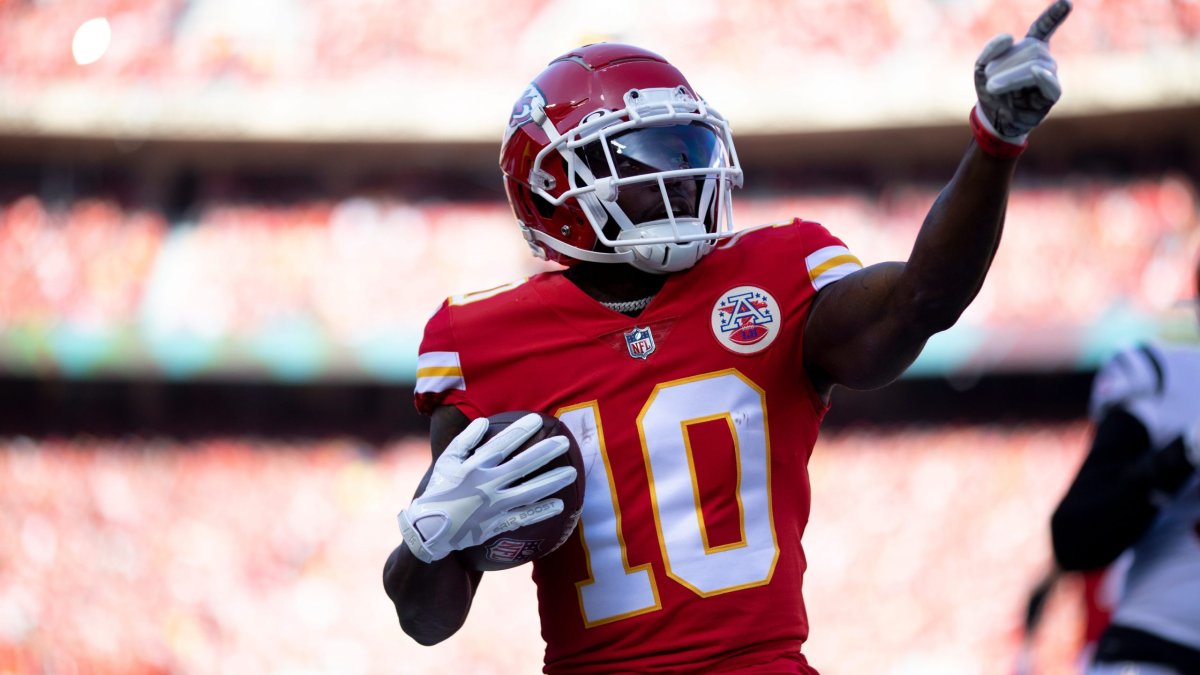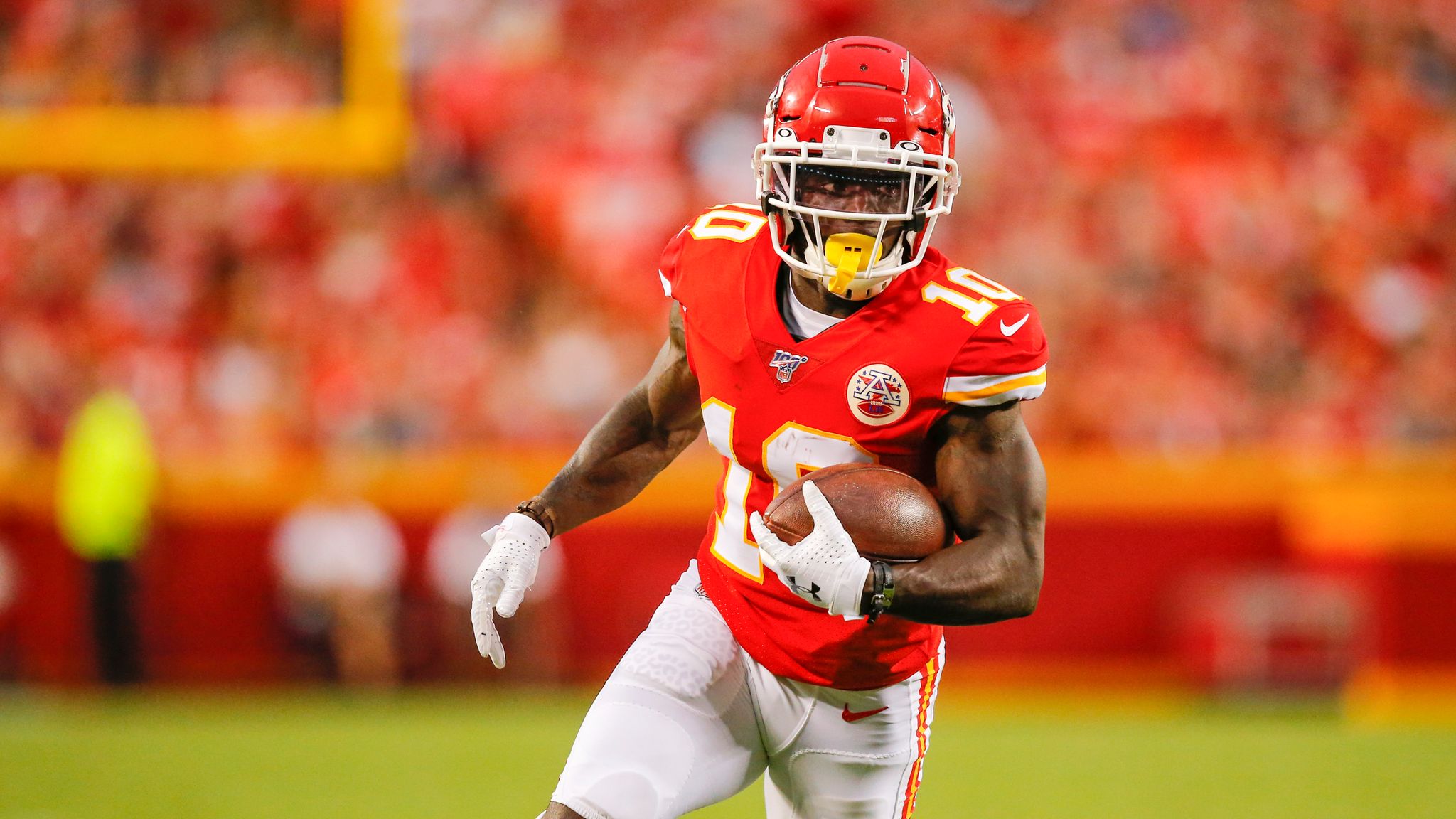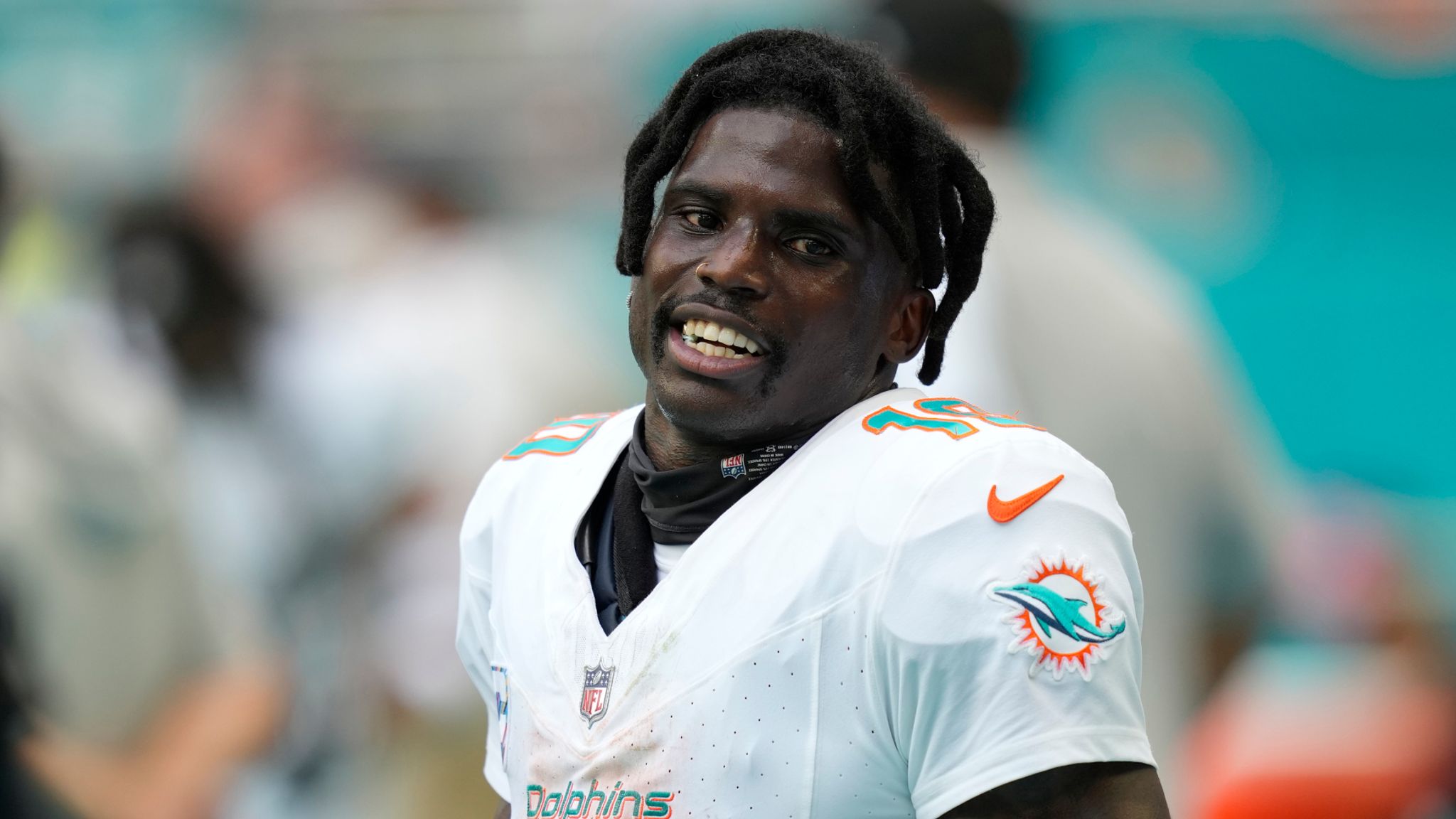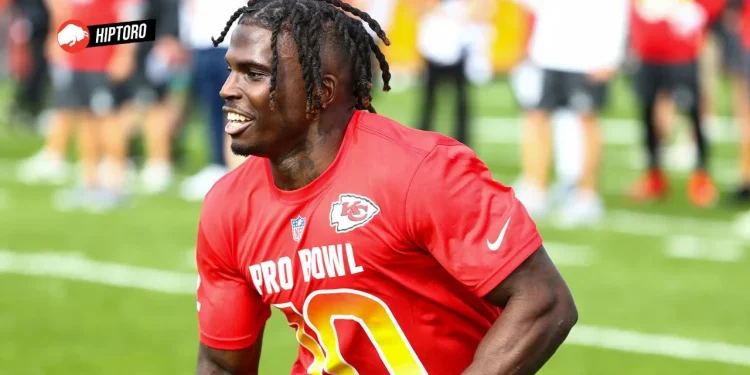When Tyreek Hill, the dynamic wide receiver known for his lightning speed and game-changing plays, left the Kansas City Chiefs for the Miami Dolphins in 2022, it signaled more than just a routine player transfer—it marked the end of a deeply impactful era. Hill, celebrated for helping propel the Chiefs to their first Super Bowl victory in decades, left a legacy tinted with both admiration and controversy.
As an integral force, Hill’s swift dashes down the field forced NFL defenses to adapt, often deploying two-deep coverages in a bid to thwart his explosive potential. Yet, the emotional whirlwind of his departure was magnified when the Chiefs reassigned his iconic No. 10 jersey to newcomer Isiah Pacheco, a decision that Hill openly criticized as disrespectful.

The Jersey Number Saga: A Symbolic Gesture?
Jersey numbers in sports are not just fabric prints; they symbolize identity and legacy. When Tyreek Hill discovered that his number was handed over to Pacheco, who was drafted in the seventh round of the 2022 NFL Draft, he expressed his displeasure on the “Million Dollaz Worth of Game” podcast.
Hill acknowledged Pacheco’s talent, emphasizing that while the running back is “real good,” the reassignment of No. 10 was a bitter pill to swallow. “There’s only one [No.] 10 now. There should only be one [No.] 10 in your heart,” Hill remarked, suggesting a deep sentimental value attached to the number that marked his celebrated tenure with the Chiefs.

In the NFL, the retiring of jersey numbers is a rare honor, typically reserved for players whose influence transcends their on-field achievements. The New England Patriots, for instance, have been notoriously selective, with Tom Brady’s No. 12 perhaps being the sole number etched permanently out of circulation.
Similar to Julian Edelman, whose No. 11 found a new bearer shortly after his departure, Hill’s No. 10 quickly adorned Pacheco—an indication that for many franchises, life and legacy move forward briskly.
Where Amon-Ra St. Brown’s contract extension compares to other WRs:
🥇Amon-Ra St. Brown – $30M/year
🥇Tyreek Hill – $30M/year
🥈Davante Adams – $28M/year
🥉Cooper Kupp – $26.7M/year pic.twitter.com/00htiBKzPp— SleeperNFL (@SleeperNFL) April 24, 2024
This practice often serves a dual purpose: it allows new players to forge their paths without the weight of legacy, and it subtly suggests that no single player is bigger than the team. Yet, for players like Hill, whose achievements resonate deeply with fans and their sense of identity, such transitions can feel less like routine protocol and more like personal slights.

Tyreek Hill’s New Chapter and Kansas City Chiefs’ Continued Success
Despite the sting of the jersey number saga, both Hill and the Chiefs have carved successful paths forward. In Miami, Hill has continued to dazzle, amassing over 3,500 receiving yards and securing two All-Pro honors in just two seasons. Meanwhile, the Chiefs have not only survived without Hill but thrived, clinching Super Bowl titles in the subsequent two seasons.
The issue of jersey numbers may seem minor in the grand scheme of things, but for athletes like Hill, it represents a deeper narrative of respect, legacy, and identity. As the NFL continues to evolve, the balance between honoring past icons and embracing future talents remains a delicate dance—one that requires both sensitivity and pragmatism from all involved.

Source: Fansided









